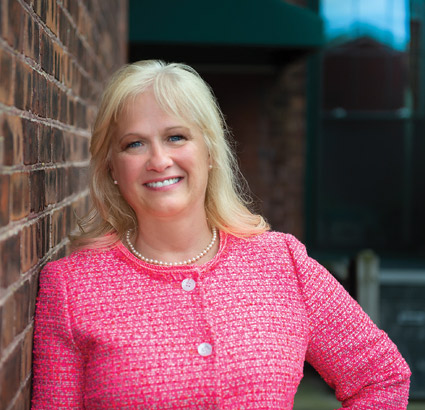
By Debbie Gardner
debbieg@thereminder.com
Patricia-Lee Baskin-Scholpp, BA, B.S.N, founded Caring Solutions of West Springfield in 2006, to make a difference in how elders are cared for. Drawing on her own experience caring for her mother, and her observations while working for another agency, Baskin-Scholpp saw a need for change, and filled it. A passionate advocate for her clients, she has a keen insight into issues surround aging, especially elder abuse.
Prime reached out to Baskin-Scholpp for a better understanding of this pervasive problem. Here is what she shared:
Q: “Abuse” usually means physical harm. But in elder abuse, harm comes in different forms. What are the types of abuse that friends, family members and caregivers should be aware of?
“Elder abuse is not as specifically defined as other forms of abuse. This alone causes confusion which results in less reporting, less investigation and more trauma haunting the elderly population. It is estimated that one out of every 10 people ages 60 and older suffer from some form of abuse. For every case of elder abuse that is reported or detected, approximately 23 cases remain concealed.
“According to Massachusetts state law “abuse” is an act or omission which results in physical or emotional injury to an elderly person or financial exploitation, or the failure, inability or resistance to provide for him one or more of the necessities essential for physical and emotional well-being. There are five types of elder abuse: physical abuse, sexual abuse or abusive sexual contact, emotional or psychological abuse, neglect and financial abuse or exploitation.
“Passive aggressive behavior is the most common form of elder abuse whether physical, emotional or financial. “I would like to help you but I can’t afford to take time off from work” (financial). “I am sorry I was a little rough with you but the pressures at home and taking care of you is just a lot for me” (physical).” If I didn’t have to help you with everything, my life would be so much easier” (emotional).”
Q: What are some of the telltale signs of the different types of elder abuse?
“Elder abuse can be very difficult to recognize because, as adults, we can become master manipulators – both the victim and the abuser – albeit for very different reasons.
“The most obvious would be signs of physical abuse, such as unexplained bruising, fractures, breaks, skin tears, or just complaints of general soreness. Sleep disturbances, increased susceptibility to new illnesses (including sexually transmitted diseases), or exacerbation of pre-existing health conditions. Isolation, continual excuses for not wanting to attend functions that were enjoyed previously, not wanting company. Refraining from activities that were previously enjoyed whether it be painting, knitting, crocheting, playing an instrument, going to bingo, anything that puts our elders in the public eye where someone might challenge their answer as an excuse. Changes in personality, possibly more withdrawn, anti-social, sad, depressed. Suddenly wanting to get ‘things‘ in order with no apparent fatal diagnosis. Loss of weight, gain in weight, change in diet because they do not want to spend money for food.
“There are many signs of abuse that can be dismissed easily, which is exactly why it is so prevalent in our society. The embarrassment, shame, fear of loss of independence, terror of being more abused or worse, killed, stops many victims from seeking help. These are very real concerns when you are at an age when you cannot strike back, defend yourself, have fear of not being believed, or put into a psychiatric or dementia facility because you have been accused of having developed a neurological disorder.”
Q: If you suspect an elder is being abused in any way, what is the next step?
“If you suspect abuse please notify Massachusetts Elder Abuse and Protective Services at 1-800-922-2275. They will be able to help 24/7 for any person over the age of 60. If it is an emergency situation or life-threatening situation please do not hesitate to call your local police station or 911.”